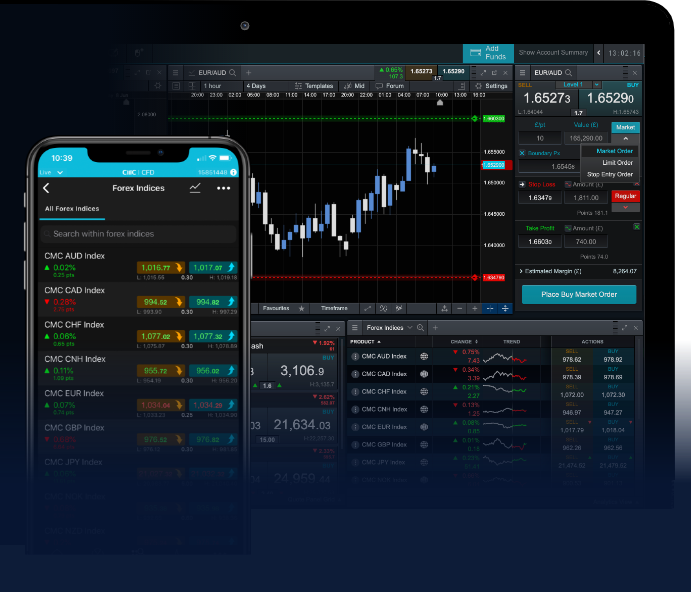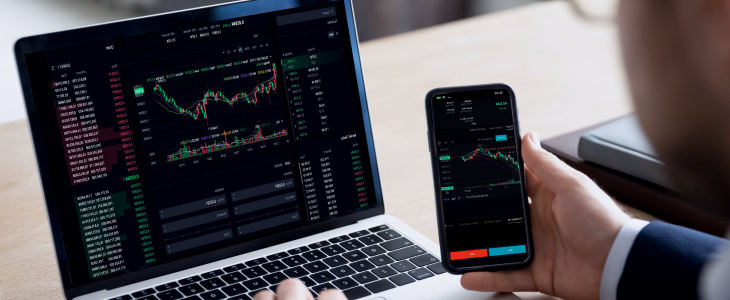
Forex trading is one of the most dynamic and lucrative markets in the world, attracting millions of traders and investors. To successfully navigate the Forex currency market, it’s crucial to understand the core principles, strategies, and tools that can help you make informed decisions. For those seeking to enhance their trading experience, consider utilizing forex currency market trading MT5 Forex Brokers that provide access to advanced tools and features.
Understanding the Forex Currency Market
The Forex currency market, also known as the foreign exchange market, is the largest financial market globally, where currencies are traded. With a daily trading volume exceeding $6 trillion, the Forex market operates 24 hours a day, five days a week. Unlike stock markets, which close at the end of the trading day, the Forex market is decentralized and operates globally through a network of banks, financial institutions, and individual traders.
Key Concepts of Forex Trading
Before diving into trading, it’s essential to grasp some key concepts that will help you make informed decisions in the Forex currency market:
- Currency Pairs: Forex trading involves the exchange of one currency for another, typically quoted in pairs, such as EUR/USD, GBP/JPY, and USD/CHF. The first currency in a pair is the base currency, and the second is the quote currency.
- Pips: A pip (percentage in point) is the smallest price move in a currency pair, usually measured in the fourth decimal place. Understanding pips helps traders quantify price movements and set stop-loss or take-profit levels.
- Leverage: Leverage allows traders to control a larger position size with a relatively small amount of capital. While this can amplify profits, it can also increase losses, making risk management critical.
- Margin: Margin is the amount of money required to open and maintain a leveraged position. It acts as collateral for the broker and is typically expressed as a percentage of the total trade value.
Types of Forex Market Participants
Several participants play an essential role in the Forex currency market:
- Central Banks: National central banks influence currency values through monetary policy and interest rate decisions.
- Financial Institutions: Large banks and financial institutions trade in enormous volumes to facilitate international commerce and secure profits.
- Corporations: Businesses engaged in international trade often use Forex trading to hedge against currency risk associated with foreign transactions.
- Retail Traders: Individual traders like you and me participate in the market through brokers, seeking to capitalize on currency price movements.
Choosing the Right Forex Broker
Selecting an appropriate Forex broker is crucial for a successful trading journey. Here are some factors to consider:

- Regulation: Ensure the broker is regulated by a recognized authority to protect your funds and ensure fair trading practices.
- Trading Platform: Look for brokers offering user-friendly and advanced trading platforms, like MetaTrader 5 (MT5), which provide a range of analytical tools and functionalities.
- Spreads and Commissions: Analyze the trading costs, including spreads (the difference between buy and sell prices) and commissions incurred on trades.
- Customer Service: A responsive and knowledgeable customer support team can enhance your overall trading experience.
Effective Forex Trading Strategies
To maximize your success in Forex trading, employing effective strategies is essential. Here are a few commonly used strategies:
- Scalping: This strategy involves making quick trades to capture small price movements, often holding positions for just a few seconds or minutes.
- Day Trading: Day traders open and close positions within the same trading day, aiming to capitalize on intraday market fluctuations.
- Swing Trading: Swing traders hold positions over several days or weeks, looking to profit from medium-term price movements.
- Position Trading: This long-term strategy involves holding positions for extended periods, basing trades on fundamental analysis and broader market trends.
The Importance of Risk Management
Effective risk management is paramount in Forex trading. Here are some best practices to help mitigate risk:
- Set Stop-Loss Orders: Use stop-loss orders to automatically close trades at predetermined levels, limiting losses if the market moves against you.
- Position Sizing: Determine the appropriate position size based on your account balance and risk tolerance to control potential losses.
- Diversification: Avoid putting all your capital into a single trade or currency pair; diversify across multiple trades to reduce risk exposure.
Staying Informed: Market Analysis
To enhance your trading success, staying informed about market trends and analysis is crucial. Use a combination of:
- Technical Analysis: This involves analyzing price charts, patterns, and indicators to predict future price movements.
- Fundamental Analysis: Understanding economic indicators, geopolitical events, and central bank policies can provide insights into currency movements.
- Sentiment Analysis: Assessing market sentiment helps gauge trader behavior and overall market psychology.
Conclusion
Forexx currency market trading offers immense potential for profit but comes with its risks. By understanding the key concepts, choosing the right broker, employing effective strategies, and practicing sound risk management, traders can navigate this complex market. With the right tools and knowledge, you can embark on your journey to becoming a successful Forex trader.
